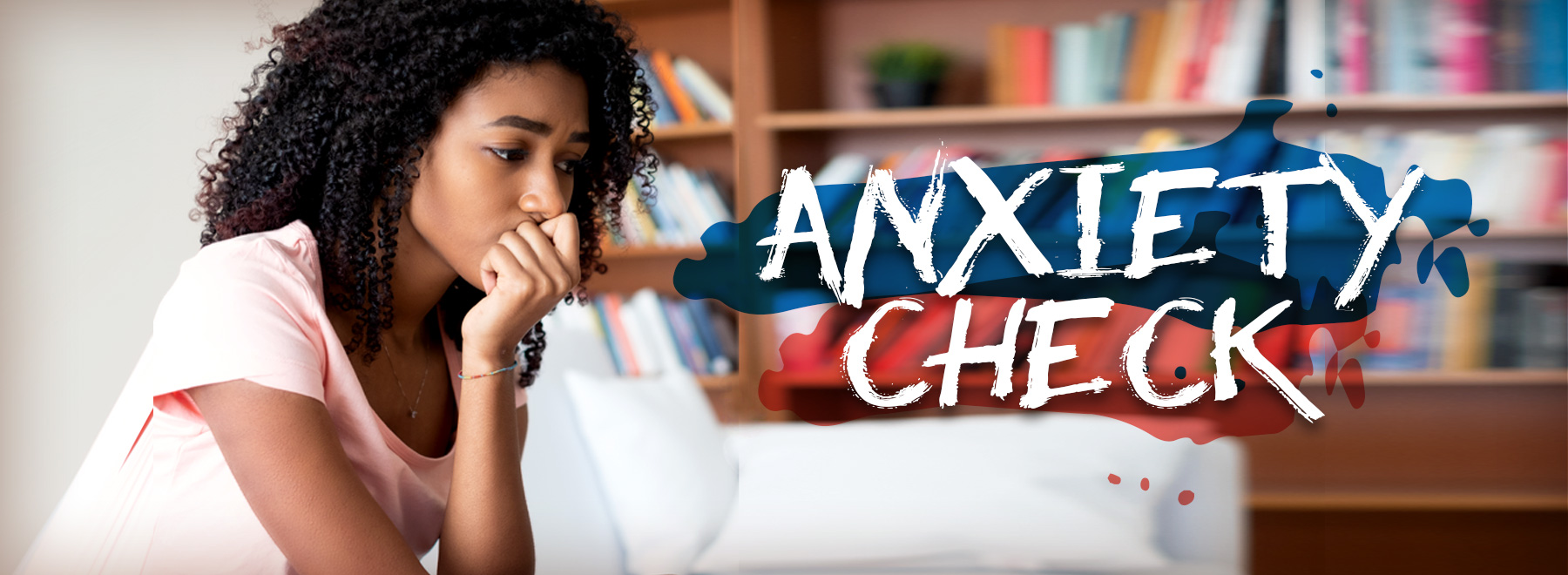Mental health screenings vital part of adolescents’ primary care
Screenings for anxiety should be as much a part of teenage girls’ doctor visits as taking blood pressure or height and weight measurements.
The Women’s Preventive Services Initiative, a coalition of U.S. women’s health professional and patient organizations, recommends that women older than 13 be screened for anxiety even if they don’t have a diagnosis of an anxiety disorder.

“Screening for anxiety is part of what adolescent medicine is,” said Dr. Steven Matson, professor of pediatrics at the University of Mississippi Medical Center and an expert in adolescent health, providing care through UMMC’s pediatric arm, Children’s of Mississippi.
According to the National Institutes of Health, nearly one in three adolescents between 13 and 18 years of age will experience an anxiety disorder. Adolescent girls are more than twice as likely to experience depression as boys – 15.9 percent vs. 7.7 percent, respectively – and all anxiety disorders are more frequent in girls than in boys.
Anxiety and depression is on the rise among youth, according to a 2016 study published in the journal Pediatrics. The rate of teenagers having a depressive episode increased 37 percent between 2005 and 2014, researchers reported.
For these reasons, the American Academy of Pediatrics recommends that physicians ask both male and female patients questions about their physical complaints, mood, behavior and activities – part of a mental health screening – as part of their primary care.
“Sometimes the way patients answer questions, their tone and some of their complaints, such as having trouble sleeping or headaches, may reflect anxiety or depression,” Matson said.
Dr. Linda Pendleton, a clinical social worker in UMMC’s Division of Adolescent Medicine, said teenagers with anxiety, depression, eating disorders and other conditions often suffer in silence unless their health care providers ask the right questions. Patients who show signs of anxiety are often referred to her for counseling.
“Our goal is to teach them coping strategies so they won’t feel so overwhelmed,” Pendleton said.

Dr. Hannah Ford, UMMC assistant professor of child development, said cognitive behavioral therapy often helps teenagers face anxiety by changing how they think about their fears and encouraging the use of relaxation techniques, such as deep breathing.
Matson, Ford and Pendleton agree that antidepressant medications have shown good results in patients who need them.
According to the AAP, studies have found that a combination of CBT and medication yields positive results in 80 percent of children with anxiety disorders, and 65 percent of those children had minimal or no symptoms after 12 weeks of treatment.
“Because anxiety can be treated, early detection can prevent years of symptoms and impairment,” Matson said.
He said anxiety can be an early sign of depression.
“The anxiety wears you down over time, making you slide into depression. If we can catch anxiety early, we can head it off at the pass.”
Ford said diagnosing anxiety early can improve physical and mental health, since anxiety can present itself with physical symptoms such as headaches or insomnia and can also make some conditions worse.
“Treating a patient’s anxiety can have a huge impact on day-to-day function,” she said. “Patients with social anxiety might be too scared to put a hand up in class, and as a result, may be getting less of an education, plus physical symptoms may be making them miserable.
“Getting anxiety under control can really improve someone’s quality of life.”
The above article appears in CONSULT, UMMC’s monthly e-newsletter sharing news about cutting-edge clinical and health science education advances and innovative biomedical research at the Medical Center and giving you tips and suggestions on how you and the people you love can live a healthier life. Click here and enter your email address to receive CONSULT free of charge. You may cancel at any time.



